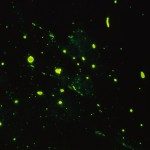About
Dr Gregory MOSELEY
Department of Microbiology
Biomedicine Discovery Institute
Monash University, Australia
“The P protein axis: a central target to prevent lethal rabies disease?”
“Viruses pose one of the grand challenges to human and animal health world-wide. The progression of viral disease is critically dependent on the formation of an array of specific interaction networks between viral proteins and host cell factors, which enable viruses to subvert important processes such as antiviral immunity and cell survival.
Research in my laboratory seeks to elucidate these interactions at the molecular level and to understand their functions in diseases caused by highly lethal human viruses, including lyssaviruses (e.g. rabies virus, Australian bat lyssavirus), paramyxoviruses (e.g. Nipah, Hendra) and filoviruses (e.g. Ebola), as well as a number of agriculturally significant and potentially zoonotic animal viruses. Through extensive collaborations with laboratories in Australia, Japan, France and the US, we use a combined approach incorporating the latest technologies for molecular/cellular analysis of virus-host interactions, and genetic manipulation/in vivo infection by highly pathogenic and emerging viruses. This underpins projects studying pathogenic processes from basic molecular events through to disease in animals, with the overarching aim of identifying new strategies to develop vaccines and drugs against currently incurable viral diseases.
The seminar will describe some of our major research into the biology of lyssaviruses, with a focus on the pathogenic mechanisms mediated by the interferon antagonist P protein. Current projects aimed at advancing our discoveries toward new therapeutic approaches will be discussed.”
Invited by Hervé Bourhy : herve.bourhy@pasteur.fr


